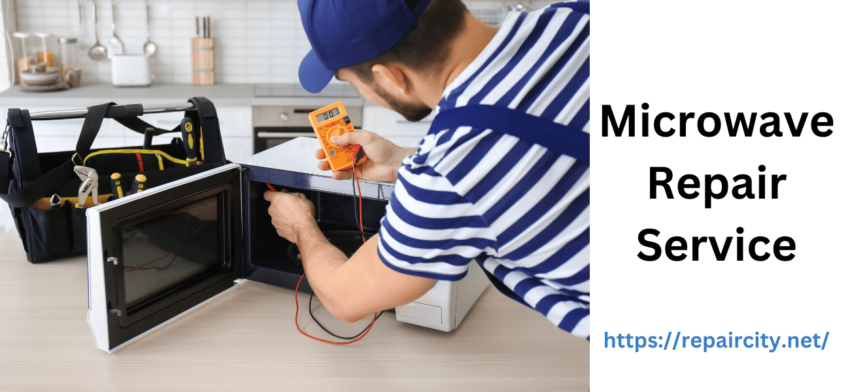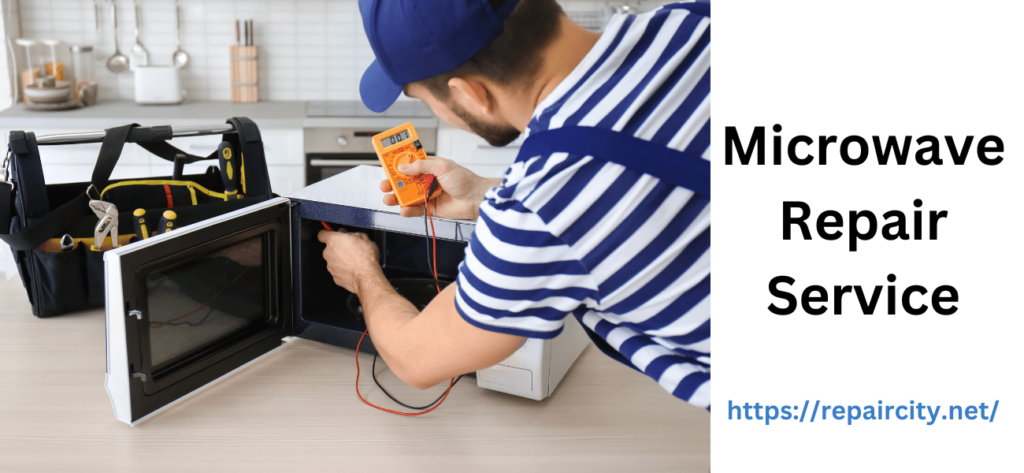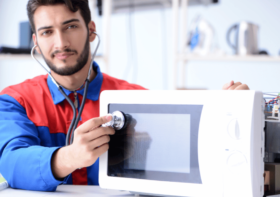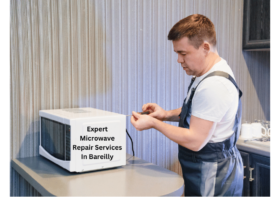Microwave Repair Service: Fixing Your Appliance Quickly and Efficiently

When your microwave breaks down, it can feel like your entire kitchen routine is thrown off balance. Whether you’re reheating leftovers, defrosting meat, or preparing a quick meal, this trusty appliance is often your best friend. So, when it stops working, you need fast, reliable, and affordable microwave repair service to get you back on track. In this article, we’ll dive deep into the ins and outs of microwave repair services, helping you understand what to look for, what to expect, and how to find the best solutions for your appliance woes.
Table of Contents
1. Understanding Your Microwave
1.1 How Microwaves Work
Microwaves use electromagnetic radiation to heat food. When you turn it on, the magnetron generates microwaves, which bounce around inside the metal cavity and excite water molecules in the food, causing it to heat up. Understanding this process can help you appreciate the complexity of your microwave and the reasons why it might malfunction.
1.2 Common Microwave Problems
From turning on but not heating to unusual noises or error codes, microwaves can exhibit a range of issues. Common problems include:
- No Power: The microwave won’t turn on.
- Inconsistent Heating: Food is hot on the outside but cold on the inside.
- Strange Noises: Grinding or buzzing sounds during operation.
- Error Codes: Displaying unusual codes that indicate malfunctions.

2. When to Call a Microwave Repair Service
2.1 Signs Your Microwave Needs Repair
If you notice any of the following signs, it might be time to call a repair service:
- The microwave does not heat food.
- There are sparks or smoke coming from the appliance.
- The door doesn’t close properly or is damaged.
- The control panel is unresponsive.
2.2 DIY Troubleshooting Tips
Before you call for professional help, try these simple troubleshooting steps:
- Check the Power Source: Ensure the microwave is plugged in and the outlet is functioning.
- Inspect the Door: Make sure it closes properly; a malfunctioning door switch can prevent operation.
- Clean the Microwave: Sometimes, food debris can cause issues. A quick clean might resolve minor problems.
3. Choosing a Reliable Repair Service
3.1 Factors to Consider
When selecting a microwave repair service, keep these factors in mind:
- Experience and Qualifications: Look for technicians with relevant certifications and experience in appliance repair.
- Customer Reviews: Check online reviews and ratings to gauge the service’s reputation.
- Warranty and Guarantees: Ensure the service offers warranties on parts and labor for your peace of mind.
3.2 Researching Local Services
Use online resources and directories to find local repair services. Ask friends or family for recommendations and compare multiple services to find the best fit.
4. What to Expect During the Repair Process
4.1 Initial Assessment
When a technician arrives, they’ll conduct a thorough assessment of your microwave. They’ll check the power supply, inspect internal components, and listen for unusual sounds. This initial diagnosis is crucial for determining the cause of the problem.
4.2 Repair Estimates and Costs
Once the technician identifies the issue, they’ll provide you with an estimate for the repair costs. Be sure to ask about parts, labor, and any additional fees. Transparency is key—if anything seems unclear, don’t hesitate to ask questions!
5. The Benefits of Professional Microwave Repair
Opting for professional microwave repair has several advantages:
- Expert Diagnosis: Trained technicians can quickly identify and fix problems that you might overlook.
- Safety: Microwaves contain high-voltage components; attempting to repair them yourself can be dangerous.
- Cost-Effectiveness: Professional repairs often save you money compared to purchasing a new appliance.
6. Common Microwave Repair Services Offered
6.1 Magnetron Replacement
The magnetron is the heart of your microwave. If it fails, your microwave won’t heat. Technicians can replace a faulty magnetron, restoring your microwave’s heating capabilities.
6.2 Door Switch Repair
If your microwave won’t start, it could be due to a malfunctioning door switch. A technician can repair or replace this component to ensure the appliance functions properly.
6.3 Control Panel Issues
Control panel problems can prevent you from setting cooking times or using features. Technicians can diagnose and repair these issues, ensuring your microwave operates smoothly.
7. Preventive Maintenance Tips
To keep your microwave running smoothly, consider these preventive maintenance tips:
- Regular Cleaning: Wipe down the interior and exterior regularly to prevent buildup.
- Use Microwave-Safe Containers: Avoid using metal or unsafe materials that can damage the appliance.
- Monitor Performance: Keep an eye on any changes in performance, and address them promptly.
8. Conclusion
Finding a reliable microwave repair service can save you time, money, and frustration. By understanding common problems, knowing when to call for help, and choosing a qualified technician, you can ensure your appliance is fixed quickly and efficiently. Remember, a well-maintained microwave not only lasts longer but also provides consistent performance for all your cooking needs.
Also Read : Top Electrician Repair Services: Fast, Reliable, and Affordable Solutions for Your Home or Business
9. FAQs
Q1: How long does a Microwave Repair Service typically take?
A: Most Microwave Repair Service can be completed in under an hour, depending on the issue.
Q2: Is it worth repairing an old microwave?
A: If the cost of repair is significantly lower than buying a new microwave and the appliance is still in good working condition, it may be worth it.
Q3: How much does Microwave Repair Service usually cost?
A: Repair costs can range from $50 to $300, depending on the issue and parts needed.
Q4: Can I repair my microwave myself?
A: While some minor issues can be resolved at home, it’s best to consult a professional for safety and expertise.
Q5: What should I do if my microwave starts sparking?
A: Turn off the microwave immediately and unplug it. Call a repair service to inspect for potential damage.



Leave a Reply